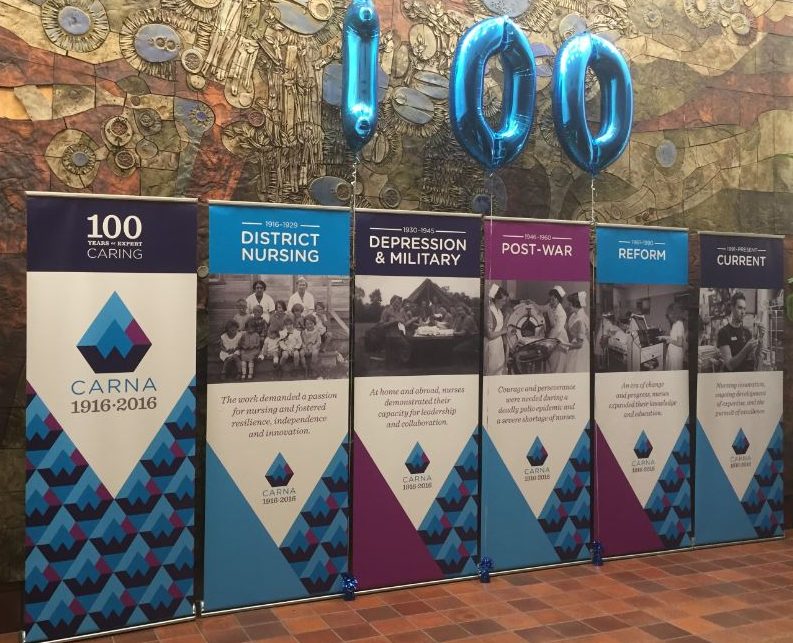To mark 100 years of registered nursing in the province, the president of the College and Association of Registered Nurses of Alberta (CARNA) was in Fort McMurray Thursday along with a display on historical nursing to showcase the important role the profession has played in our region.
Shannon Spenceley said it all started in the midst of the First World War.
“A very small group of nurses, seven of them, got together and said they were convinced that the public was best served by a profession, a true profession that was regulated, that had consistent educational standards, that delivered a consistent level of care,” she said. “They really strongly believed that the public in Alberta deserved that and they advocated for that. The government of the day was not bent in that direction and didn’t think that was a particularly great idea and I don’t think it would have happened without the United Farm Women of Alberta.”
That organization wielded a lot of influence and helped to push the province to adopt a professional standard for nursing.
“In 1916 the very first regulatory body for nurses that ensures safe, competent, ethical nursing care to Albertans was born and here we are, 100 years later, we are now called the College and Association of Registered Nurses of Alberta,” said Spenceley.

She said CARNA has evolved beyond the mandatory minimums for education, ethics, and professional standards that are regulated to include a culture of excellence encouraged among the province’s registered nurses.
“Of course, we can’t ensure that every single nurse is excellent in his or her practice. I can tell you that we provide opportunities for nurses to enhance their education, so we provide educational sessions, we provide an opportunity for nurses to get together in interest groups, you know in every group there’s keeners that want to get together and talk about how to make their clinical practice better,” said Spenceley.
Those groups are called specialty practice groups and span the spectrum of specialty fields for nurses allowing them to collaborate on ways to improve clinical work in their fields.
Spenceley said there are examples across the province of nurses going above and beyond the call of duty and the stories that came out of the wildfire are exemplary of the dedication of registered nurses and the passion they have for their profession.
“I’ve heard so many stories from nurses and I take every opportunity I can to share them because I do think we need to be very proud of our colleagues here in Fort McMurray. They stayed calm and they stayed professional even while their own homes were in peril and stayed and cared for their patients in such an exemplary manner and made sure, many worked far beyond their own shift, many came in that were not on shift, and stayed with patients for two and three times their regular work times to make sure that patients got where they needed to go. You can’t ask anything more of a professional,” said Spenceley.
Here in Fort McMurray RNs and nurse practitioners played an essential role in supporting our community through the fire and evacuation, from the onsite evacuation of the Northern Lights Regional Health Centre, to the occupational health nurses working in the camps, to the temporary treatment centre set up in the parking lot at the Syncrude Sport and Wellness Centre in the early days of re-entry, to the Edmonton recovery centre.
The stop in Fort McMurray for the display was the final stop on a tour of the province to celebrate the centennial.







